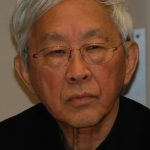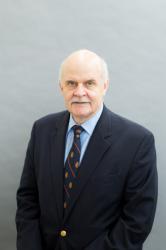This article is written by Moris Polanco, originally published by Instituto Fe y Libertad and republished with permission.
The elderly cardinal Zen Ze-kiun, bishop emeritus of Hong Kong, said in his blog on February 5, 2018, “The brothers and sisters of mainland China are not afraid of being reduced to poverty, of being put into prison, of shedding their blood. Their greatest suffering is to see themselves betrayed by ‘family.’” He’s right.
For a moment let’s put ourselves in the shoes of the bishops, priests, and laity who have been faithful to the Roman Catholic Church. Since the triumph of Marxism-Maoism in China, they have been persecuted and martyred for their fidelity to Catholicism. Loyalty to the Communist party was demanded of them. But how can a Catholic swear loyalty to an atheist party and an atheist government? Those who swore loyalty to the party and formed the so-called Patriotic Church were not Catholics: they were apostates, including bishops and priests. You can’t be both Catholic and Communist.
On September 22 the Holy See signed an agreement with the People’s Republic of China “which includes the Vatican’s recognition of the bishops named by the Communist authorities” (Aciprensa). How necessary was it to sign this agreement? The director of the Vatican Press Office, Greg Burke, said, “The objective of the accord is not political but pastoral, allowing the faithful to have bishops who are in communion with Rome but at the same time recognized by Chinese authorities.” Does that mean that the bishops who had been named by the government are no longer loyal to the regime? Are those bishops Communist or Catholic?
On another note, are the Vatican diplomats ignorant of number 20 of Christus Dominus, the Second Vatican Council’s decree on the pastoral ministry of bishops? It says categorically,
Since the apostolic office of bishops was instituted by Christ the Lord and pursues a spiritual and supernatural purpose, this sacred ecumenical synod declares that the right of nominating and appointing bishops belongs properly, peculiarly, and per se exclusively to the competent ecclesiastical authority.
Therefore, for the purpose of duly protecting the freedom of the Church and of promoting more conveniently and efficiently the welfare of the faithful, this holy council desires that in future no more rights or privileges of election, nomination, presentation, or designation for the office of bishop be granted to civil authorities. The civil authorities, on the other hand, whose favorable attitude toward the Church the sacred synod gratefully acknowledges and highly appreciates, are most kindly requested voluntarily to renounce the above-mentioned rights and privileges which they presently enjoy by reason of a treaty or custom, after discussing the matter with the Apostolic See.
What does the Pope say about this? In a September 26 message directed to Chinese Catholics and the universal Church, Francis expresses his “sincere admiration…for the gift of your fidelity” while at the same time asking faithful Catholics to “walk together”; that is, to associate with those who consider themselves Catholic but have sworn loyalty to the Party and the government.

The Pope desires the unity of Catholics in China. But his letter is addressed to the clandestine Catholics, those who have kept their faith and been faithful to it. He is apparently asking them to forgive the Catholics of the Patriotic Church and to forgive the government. All “for the sake of supporting and promoting the preaching of the Gospel in China and reestablishing full and visible unity in the Church.” I wonder—are the “patriotic Catholics” seeking unity? Would they perhaps swear loyalty to the Church? Why doesn’t the Pope address those “Catholics” and ask them to return to the faith and come to the defense of their persecuted brethren?
The Pope says that the phenomenon of clandestinity “is not a normal part of the life of the Church.” But was the Church not born in the catacombs, and did she not endure clandestinely for more than three hundred years? Haven’t recent popes said that there are many more martyrs today than in centuries past? Should we compromise the faith so as not to live clandestinely? What meaning does martyrdom have?
Francis says that he has “experienced great consolation in knowing the heartfelt desire of Chinese Catholics to live their faith in full communion with the universal Church and with the Successor of Peter.” What would he have experienced if he had heard those same “Catholics” say the following: “We will follow the path of adaptation to a socialist society” (source: El País)? Or does the Pope consider it legitimate for a Catholic to seek to adapt his faith to the path of socialism?
In Martin Scorsese’s film Silence, a young Jesuit decides to publicly renounce his faith to save the lives of a group of young Japanese Catholics. What sort of example did he give his brothers? Can I renounce my faith to save my earthly life? That seems to be the message now being sent to Chinese Catholics: save your life, yield in your faith. In other words, “Surrender!”
Cardinal Zen’s suffering is understandable. It’s no wonder he feels betrayed and thinks the Vatican is selling out the Catholic Church in China. God grant that this “provisional agreement” may not last.
Moris Polanco is the editor of the Fe y Libertad publication.
Image source: Wikimedia Commons

